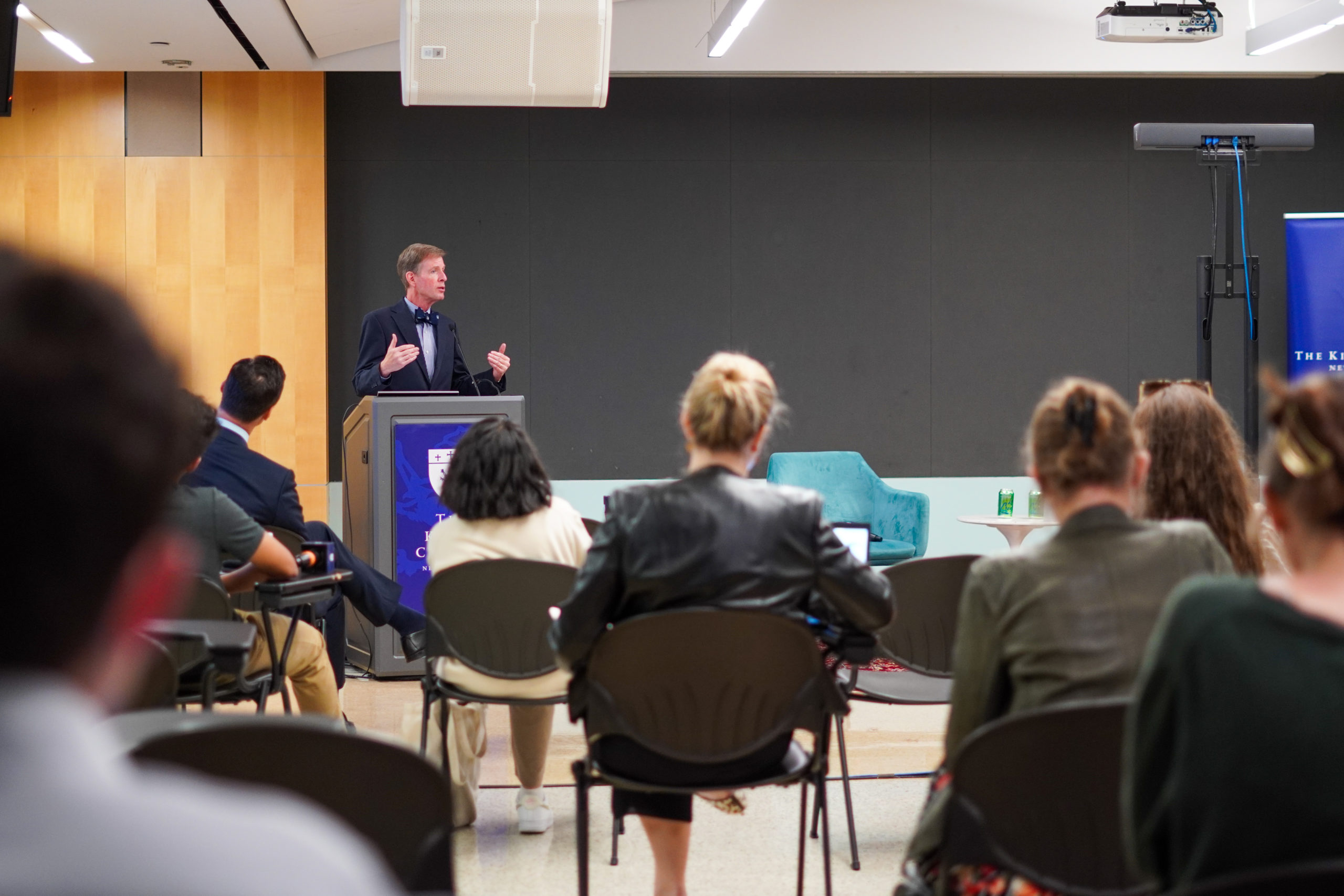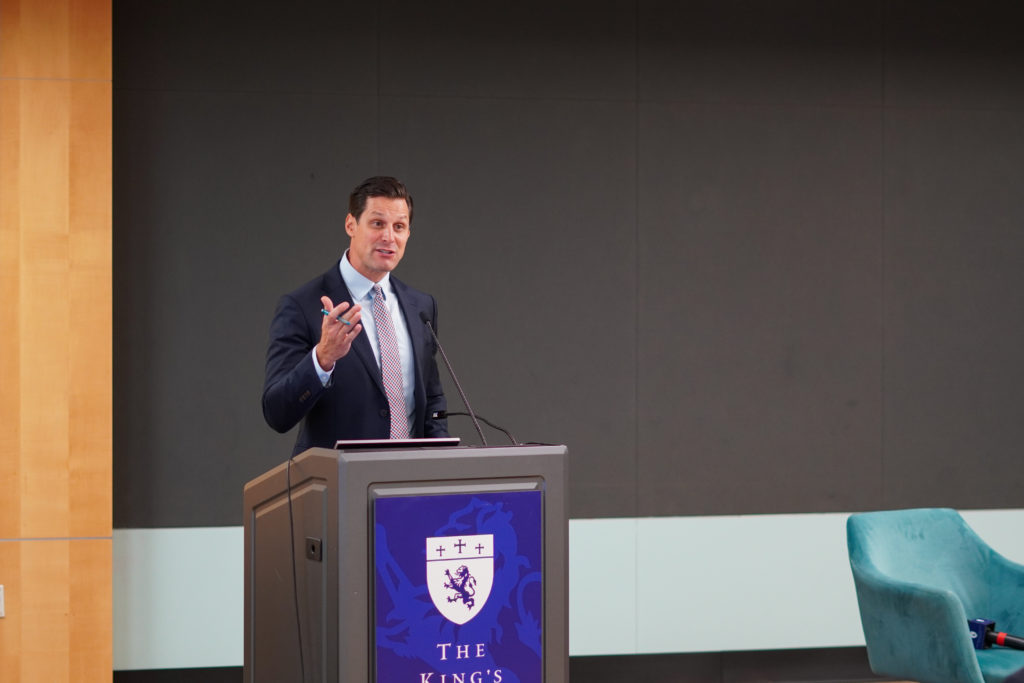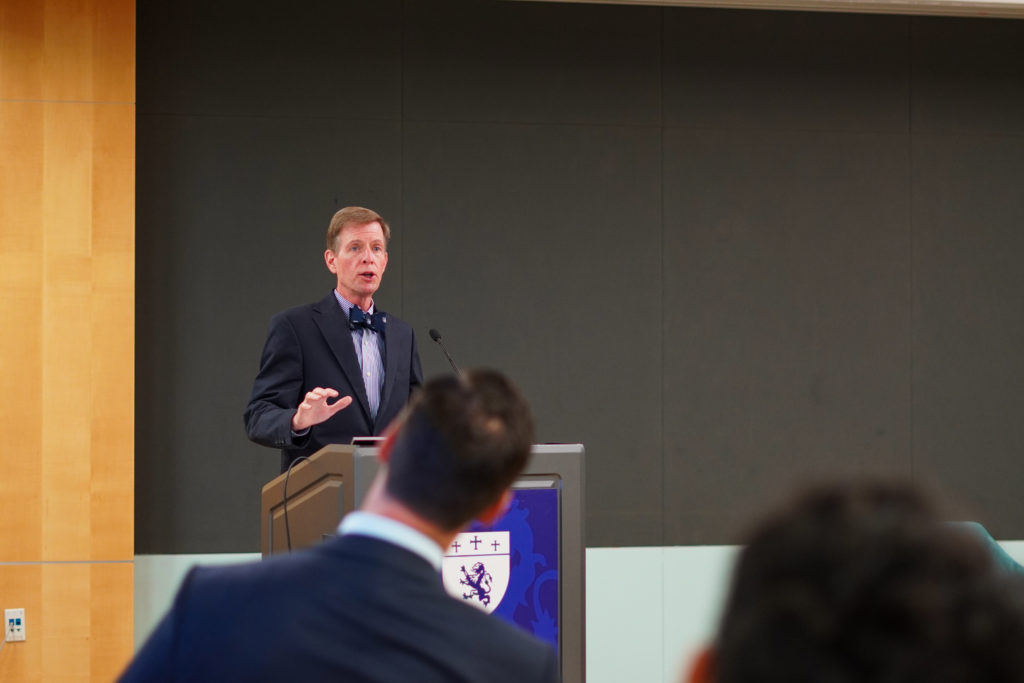The Quest for Religious Freedom: Senior Fellow Tim Goeglein Delivers Presidential Lecture at The King’s College
Former White House aide Tim Goeglein encouraged Christians to strive towards the religious ideals of the United States Founders.

On Wednesday, September 15, Senior Fellow Tim Goeglein visited The King’s College to deliver an address titled, “Faith in the Halls of Power: Where is America Heading in the Quest for Religious Liberty?” Formerly a top aide to President George W. Bush and now the Vice President of External and Government Relations at Focus on the Family, Goeglein has worked to promote a Christian understanding of religious liberty in the public square for over 30 years.
After an introduction from Executive Vice President Brian Brenberg, Goeglein began his talk by posing a question about the United States’ Founding: “Is there actually a faith-based, Judeo-Christian foundation in this country?” To answer this question, he laid out three perceptions people have today of the religious roots of the United States. The first tradition believes that the United States Constitution is godless, and that the nation’s Founders sought to isolate the government from any belief that human beings were accountable to God for how they governed. The second tradition believes that the United States was founded as an explicitly Christian nation and that all laws should only support and further one particular expression of Christianity. The third tradition believes that while the lower classes of the United States needed Christianity to manage the challenges of life, the Founders of the country were not Christians and did not sincerely believe in God. According to Goeglein, each of these traditions misses the clear emphasis of the nation’s Founders.

Goeglein led the audience through an investigation of how America’s Founders viewed Christianity and religious freedom. Quoting George Washington, James Madison, Thomas Jefferson, the first Supreme Court Chief Justice John Jay, and early Senate documents, Goeglein showed how the key leaders during the Founding of the United States saw truth in and a need for the Christian faith, yet established a government where citizens could express faith in various ways.
Goeglein quoted John Adams, who wrote, “We have no government armed with power capable of contending with human passions unbridled by morality and religion. . . . Our Constitution was made only for a religious and moral people.” Even Thomas Jefferson, who is often used as an example of a Founding Father against Christianity, saw the need for a Christian foundation to the country: “Can the liberties of a nation be thought secure when we have removed their only firm basis: a conviction in the minds of the people that these liberties are a gift of God?” Goeglein presented numerous examples in support of his central claim, that without Christianity, the Founders of the United States saw no way for the country to thrive as a constitutional republic.
Goeglein then moved to a time of practical application, reminding listeners that the ideals of liberty and freedom require a country committed to virtue and moral excellence. “I believe, as Christians, that we have a duty to speak the truth about politics, about our biblical views of morality and God,” Goeglein said. “It is important. . . . to stand for religious, moral, and civic renewal in light of the biblical code.” He encouraged students to neither blend in with culture nor hide from it, but rather be willing to build meaningful relationships with people who see life differently. He argued that these personal relationships can help to shape a country and a culture that continues to draw from its Christian roots.
After moderating a time of question and answer, Brenberg closed the event by drawing a connection between Goeglein’s remarks and the mission of The King’s College. The King’s College is in New York City, said Brenberg, “not because it is cheap, not because it is easy, and not because life always goes smoothly, but because in a place like this, we have opportunity to talk about issues like justice and religious liberty with real people—often who might disagree with us—with the great hope that it will result in change in this country.”





